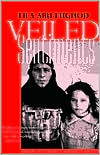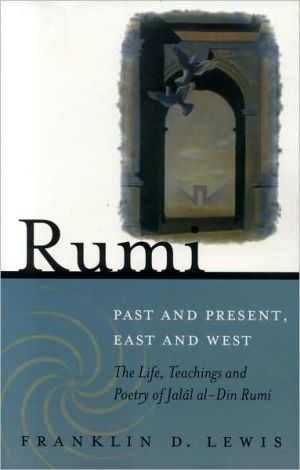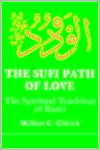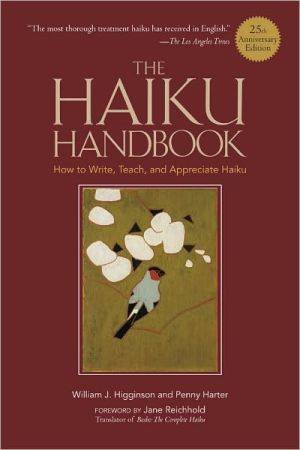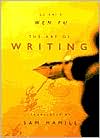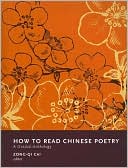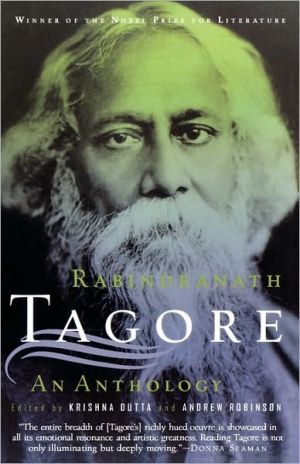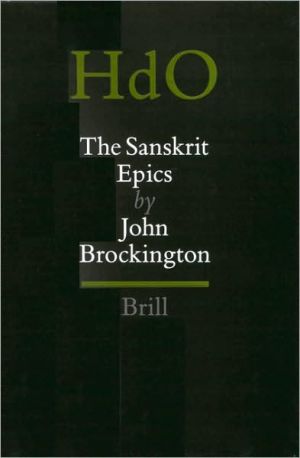The Way of Passion: A Celebration of Rumi
A powerful interpretation of Rumi and his message of divine love and union. The Way of Passion, a penetrating antidote to today's spiritual crises, presents Rumi's magnificent visions of spiritual surrender and mystical union.\ \ \ Contemporary translations of 13th-century poet Rumi's mystical poems have enjoyed tremendous popularity among modern readers. Oxford scholar Andrew Harvey's dramatic interpretation results from his own personal spiritual experience. He...
Search in google:
Englishman Andrew Harvey was born in South India, where be lived until the age of nine when he was sent to England to be educated. He attended Oxford, and at age twenty-one received England's highest academic honor, becoming the youngest Fellow of All Soul's College in its history. A prolific writer, Harvey is the author of over ten books, including Journey to Ladakh (1983). He collaborated with Sogyal Rinpoche on the bestselling Tibetan Book of Living and Dying (1991), which presents the Tibetan Buddhist view of death and the nature of the mind. Despite his success as a scholar, educator, writer, and poet, Harvey experienced intense dissatisfaction at the disparities and inequities of the patriarchal, rationalist Western tradition and longed for the spiritual richness of his boyhood in India. In 1977 he returned to India and immersed himself in its culture, philosophy, and spirituality, studying at the ashram of the Bengali mystic Sri Aurobindo. The next year Harvey traveled to Pondicherry to meet Kamala Reddy (Mother Meera), an Indian woman then only seventeen years old who her followers believe is an avatar, a living incarnation of the Divine Presence. With Mother Meera Harvey underwent a series of profound mystical experiences, but remained reticent to commit to her as his spiritual mentor. He returned to the West and taught in the United States for the next seven years while continuing to make regular pilgrimages to India. There, Harvey studied with the Tibetan Buddhist Master Thuksey Rinpoche. In 1986 he presented himself to Mother Meera and lived for a year at her home in Germany. His critically acclaimed Hidden Journey: A Spiritual Awakening (1991) describes his work with the Divine Mother, and brought international attenion to master and disciple. Based now in Paris, Harvey is the subject of a 1993 documentary, The Making of a Mystic. The Way of Passion: A Celebration of Rumi follows Harvey's Love's Fire (1988) and Speaking Flame (1989), two re-creatioLibrary JournalHarvey is probably best known for Hidden Journey (Viking, 1991), in which he details his spiritual surrender to the Indian mystic Mother Meera. He has since found in the mystic poetry of the 13th-century Sufi master Rumi a distillation of the message that he believes Mother Meera embodies and that the world cannot afford to ignore. ``I believe we are all in the last moments of a civilization,'' Harvey writes. ``What is at stake is the whole human experiment.'' Some will find this fixation on the imminent apocalypse distracting. Taken from a series of lectures given in 1993, the book is probably of greatest interest to those having some prior familiarity with the poetry. Harvey's passion and enthusiasm often lead to hyperbole, and his interpretation of Rumi, while compelling, needs to be absorbed slowly and with a critical eye. For collections with an interest in Sufism or mysticism in general.-Mark Woodhouse, Elmira Coll. Lib., N.Y.
PrefaceixChapter 1.The Journey to Love1Chapter 2.The Price of Adoration37Chapter 3.Dying, Blossoming73Chapter 4.The Voice of Silence109Chapter 5.Springtime of Eternity137Chapter 6.Perfect Being165Chapter 7.Apocalypse and Glory189Chapter 8.Sacred Art, Sacred Dance217Chapter 9.The Divine Child247Chapter 10.Death as Triumph275Chapter 11.In Love, As Love, For Love303
\ Library JournalHarvey is probably best known for Hidden Journey (Viking, 1991), in which he details his spiritual surrender to the Indian mystic Mother Meera. He has since found in the mystic poetry of the 13th-century Sufi master Rumi a distillation of the message that he believes Mother Meera embodies and that the world cannot afford to ignore. ``I believe we are all in the last moments of a civilization,'' Harvey writes. ``What is at stake is the whole human experiment.'' Some will find this fixation on the imminent apocalypse distracting. Taken from a series of lectures given in 1993, the book is probably of greatest interest to those having some prior familiarity with the poetry. Harvey's passion and enthusiasm often lead to hyperbole, and his interpretation of Rumi, while compelling, needs to be absorbed slowly and with a critical eye. For collections with an interest in Sufism or mysticism in general.-Mark Woodhouse, Elmira Coll. Lib., N.Y.\ \

